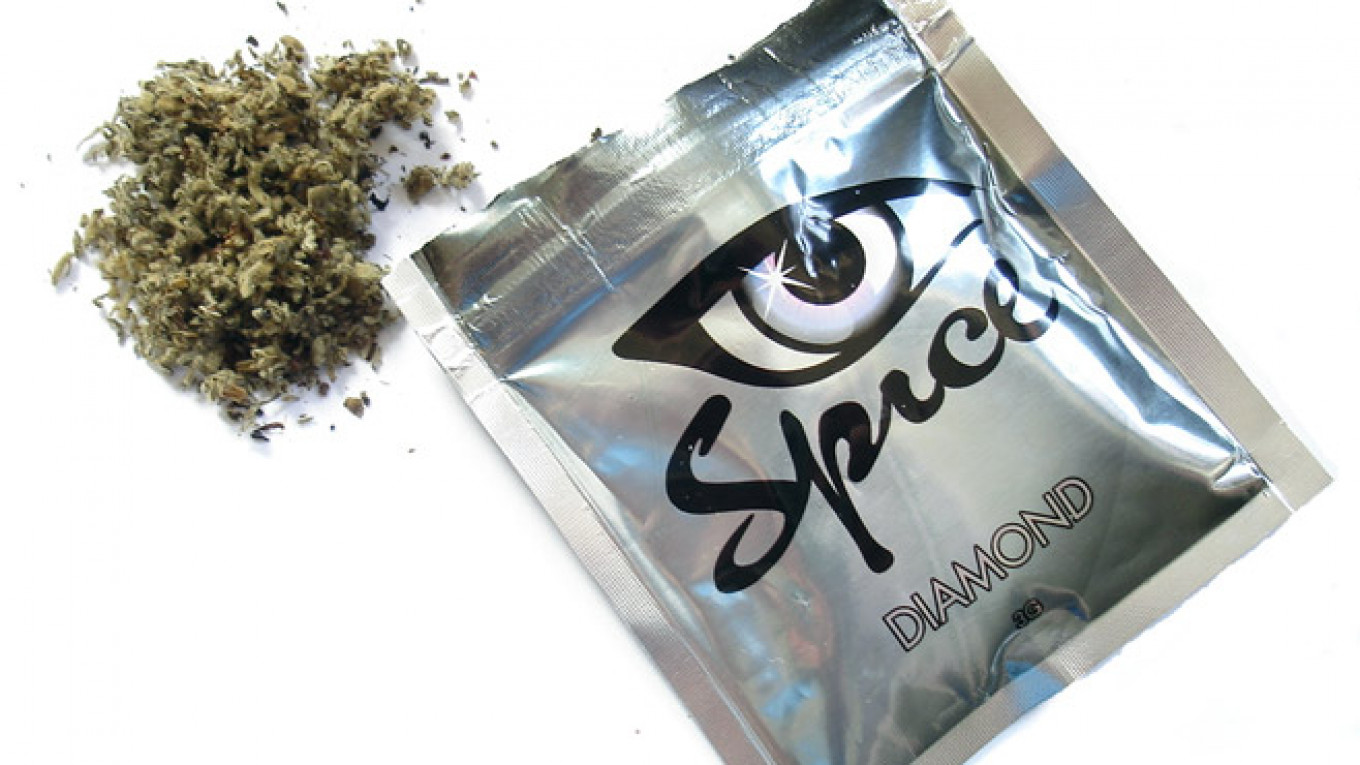Doctors in the Lipetsk region have recorded a sharp increase in the number of HIV infections, and one has blamed the trend on the dangerous smoking blends known as "spice" that have caused dozens of deaths in the country in recent weeks.
As of Oct. 1, the region had registered 1,516 cases of HIV infection over the first nine months of the year, 338 more than in the same period last year, RIA Novosti reported late Tuesday.
At a meeting Tuesday to present data on HIV infections in the region, members of the city council attributed the nearly 30 percent increase to synthetic marijuana blends known as "spice." The substance is banned in Russia but relatively easy for drug dealers to sell using loopholes in the law and synthesizing new compounds that are not on the federal banned substances register.
The drug has prompted a scare among medical workers and Russia's Federal Drug Control Service, as dozens of users have died from a blend of the mixture in recent weeks.
The new HIV infections in the region have mostly appeared among locals, not among migrants as had previously been the case, the report said. The rate of infection has increased fourfold among residents in the region, and sevenfold among residents of the region's capital city, RIA Novosti reported.
"Why was the Lipetsk region previously among the ranks of relatively unaffected territories? Because HIV infections hadn't appeared on the drug scene. But now this has happened. And at the same time, 'spice' has appeared. Even secret drug addicts who earlier used heroin or amphetamines have now switched to 'spice' for its easy accessibility and affordability," Lyudmila Kirillova, head doctor of the region's center for fighting AIDS and other infectious diseases, was cited by RIA Novosti as saying.
While the synthetic smoking blends are not usually injected intravenously, Kirillova said she believes they increase the sex drive of those who use them, leading to a loss of control of behavior and increase in the occurrence of unprotected sex.
Kirillova's comments came after the Moscow branch of the Federal Drug Control Service said in a statement that it had confiscated three times as much heroin since the start of this year than during the same period last year. Over the first nine months of this year, the agency seized 480 kilograms of the drug, compared with 173 kilograms of heroin in the first nine months of last year.
The apparent increase in heroin may also have affected the Lipetsk region, whose capital city is just over 450 kilometers from Moscow.
Contact the author at a.quinn@imedia.ru
A Message from The Moscow Times:
Dear readers,
We are facing unprecedented challenges. Russia's Prosecutor General's Office has designated The Moscow Times as an "undesirable" organization, criminalizing our work and putting our staff at risk of prosecution. This follows our earlier unjust labeling as a "foreign agent."
These actions are direct attempts to silence independent journalism in Russia. The authorities claim our work "discredits the decisions of the Russian leadership." We see things differently: we strive to provide accurate, unbiased reporting on Russia.
We, the journalists of The Moscow Times, refuse to be silenced. But to continue our work, we need your help.
Your support, no matter how small, makes a world of difference. If you can, please support us monthly starting from just $2. It's quick to set up, and every contribution makes a significant impact.
By supporting The Moscow Times, you're defending open, independent journalism in the face of repression. Thank you for standing with us.
Remind me later.






